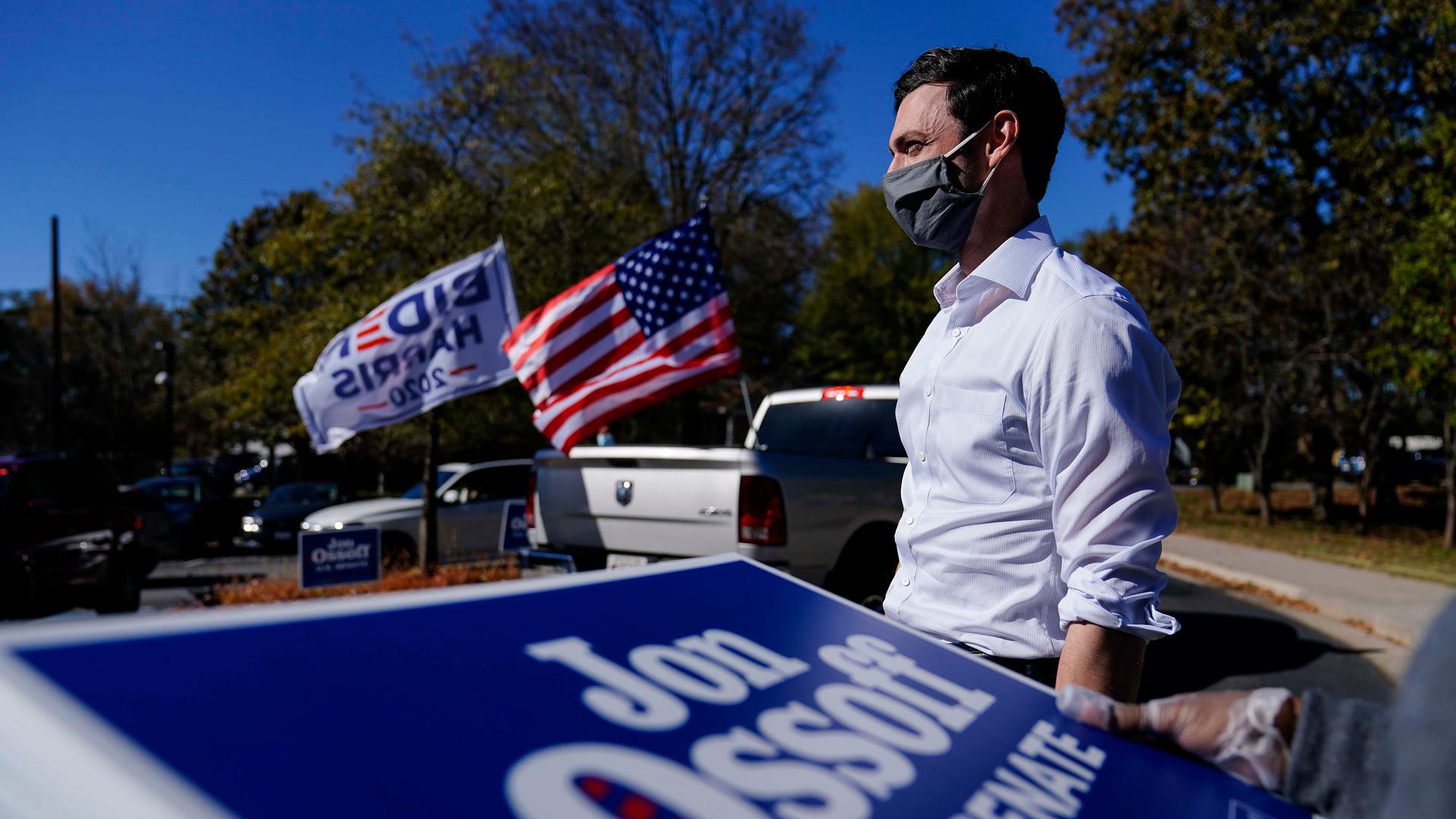This story is part of “Every 30 Seconds,” a collaborative public media reporting project tracing the young Latino electorate leading up to the 2020 presidential election and beyond.
In a Jan. 5 special runoff election, voters in the state of Georgia will decide who will represent them in the US Senate: Democratic candidate Jon Ossoff or Republican candidate Sen. David Perdue. The outcome will also determine whether Democrats or Republicans will control the US Senate.
Grassroots organizations are out mobilizing every vote they can muster, including a crucial campaign targeting Latino voters. Latinos were among the voter groups that helped President-elect Joe Biden win the state of Georgia — the first time a Democrat has taken the state in decades.
Recently, the national organization Mijente started canvassing in Georgia with a rally. Mijente’s political director, Tania Unzueta, joined The World’s host Marco Werman from Atlanta to discuss outreach to Latino voters.
Related: Why is Arizona trending blue? Ask the Latinos and immigrants who live there.
Marco Werman: I know you began a campaign knocking on doors, talking to potential voters. Who exactly are the people you’ve reached so far, and are they first-time voters?
Tania Unzueta: We have a goal of reaching every Latino voter in the state of Georgia at their doors, and that means having conversations with people in very diverse ways, given that the Latino community is not monolithic. So, we’re reaching first-time voters because people can still register to vote. But we’re also talking to people who voted and didn’t know that there was an election coming or don’t know who the candidates are. As well as people who voted Republican, and we’re trying to convince them to vote Democrat.
This election, Mijente changed to become a partisan organization. You threw your muscle behind the Democrats. Why was it important to take that position? And when did you do that?
We are not known to be an organization that’s always in support of the Democratic Party. I think, in fact, our history comes very much from pushing the Obama administration to shift its policies on immigration enforcement. And so, we’ve been there. But I think because of that, like what we’ve all seen under the Trump administration, it was absolutely clear that our communities would be better off with Trump out of power. And that means our community should vote for Democrats. And it’s the same thing here in the Senate. We’re talking about not just what these particular individuals can do, but really a balance of power that gives us a better possibility to win on the issues that we want to win.
And so in the next few days, volunteers from across the country will be arriving in Georgia to help with these get-out-the-vote efforts. What’s going to be the biggest hurdles as you continue trying to reach Latinos?
I think finding Latinos has been a hurdle already. The data about our community is actually just really bad because for years and years and years, people have not invested in reaching our community. And people are also moving around the state constantly because of the type of work and because of the industry that people are involved in.
Well, again, we saw this year that Latinos are not a monolith when it comes to voting. Cuban Americans in Miami are very different than Mexican Americans in Los Angeles, for example, when it comes to Georgia, what are some of the backgrounds of Latinos in Georgia and historically how they’ve voted?
A large number of Latinos in Georgia are of Mexican descent. You have a population that really grew after the 1996 Olympics or actually right before the ’96 Olympics. And so these are folks who came to work in the state of Georgia and whose children now are 21 to 24, 25 years old. So, if you can imagine, there’s also a very growing second generation of Latinos coming of age in terms of being able to vote, and I think, is really looking for representation in Georgia, both in politics and in their communities. There’s also a growing Puerto Rican community, particularly folks who have been here for a long time, but it grew after Hurricane Maria. And so, we have folks who are coming in and we do have pockets of Venezuelan communities, of Central American communities throughout the state. And again, as you said, they are very different in terms of where they’re coming from, in terms of their understanding about Georgia politics and Democrats.
What are you hearing from different Latino communities given what’s at stake with the outcome in Georgia?
So far, the reaction of those who know about the election has been good. I think a lot of people have been encouraged by the results of the general election and Georgia turning blue. I think that that’s something that people have been working on for a long time. Honestly, there’s just still a lot of information to be given to people. There’s a lot of questions given the way that the state of Georgia has taken voters off of the registration files, and the hard time that people have had and actually being able to vote.
So, there’s questions about just, what is this runoff election? Who are the people who are running and also what do I need to make sure that my vote is counted in the state of Georgia?
This interview has been lightly edited and condensed for clarity.
